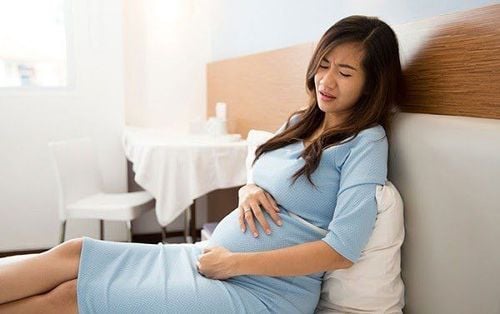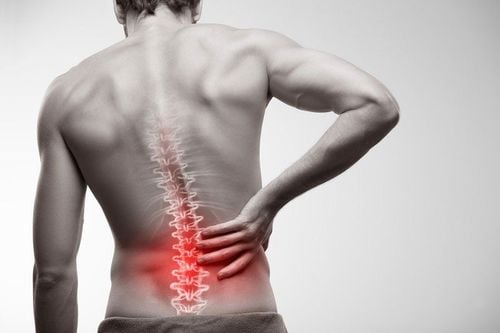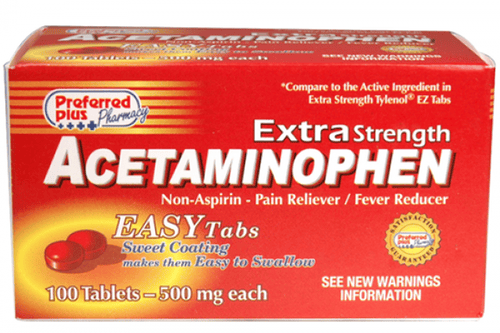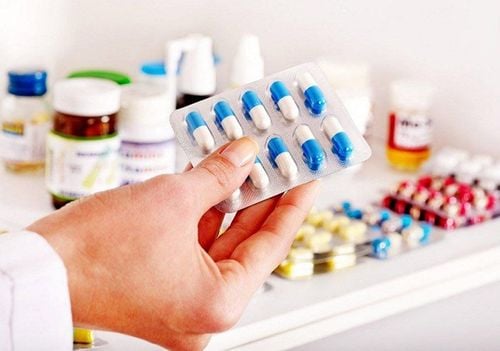This is an automatically translated article.
The article is written by Master, Doctor Mai Vien Phuong - Gastroenterologist - Department of Medical Examination & Internal Medicine - Vinmec Central Park International General Hospital.
Constipation is very common, in the United States, 2.5 million people experience problems related to constipation. Sometimes, back pain can be accompanied by constipation. So why can the two happen together and how can it be treated?
1. Constipation Overview
The main job of the large intestine is to absorb water from leftover food as it passes through your digestive system. It then produces feces (waste). The muscles of the colon eventually push the waste out through the rectum for elimination. If stool lingers for too long in the colon, stool can become hard and difficult to pass.
Poor diet frequently causes constipation. Adequate fiber and water intake are needed to help soften stools.
To learn more about the causes, symptoms of constipation, telltale signs and people who often experience constipation, please refer to the article below.
MORE: Understanding constipation
2. Causes of constipation with back pain
Sometimes a condition, such as an infection or a tumor pressing on the spinal cord, can lead to back pain. Constipation can be a side effect of this condition.
Back pain due to defecation
The stool can cause low back pain. Stool rupture occurs when a piece of dry stool gets stuck in the colon or rectum. Pressure in the rectum or colon can lead to pain that radiates to the back or abdomen.
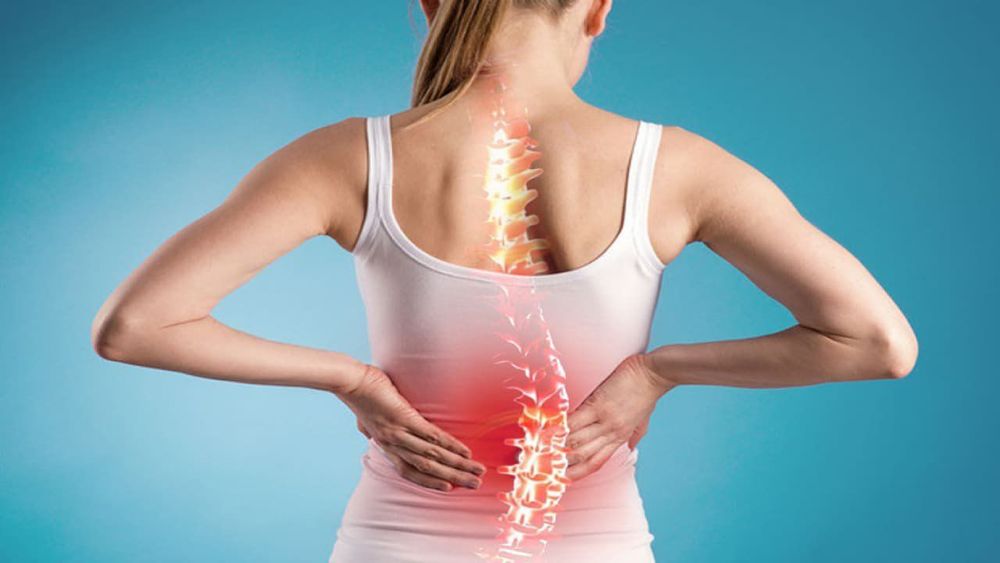
3. Constipation and Back Pain Treatment Options
The first treatment for constipation is to change what you eat. Try to add more fiber and water to your diet to help soften stools and make them easier to pass.
If constipation occurs after starting a new diet or taking a new medication, call your doctor. They can help you adjust your diet or medication or agree to stop altogether.
Some common constipation treatments include:
Regular exercise: Physical activity promotes proper circulation and keeps your bowels healthy Increase your water consumption Add more fiber your diet Getting started on a regular schedule of bowel movements Stool softeners, suppositories, and over-the-counter laxatives can provide temporary relief from constipation. You can also try stool softeners and natural laxatives. For chronic constipation, your doctor can help treat the underlying cause.
If addressing constipation does not significantly reduce or eliminate your back pain, chances are they are unrelated. Talk to your doctor about evaluating your back pain.
4. How to treat and prevent constipation
Changing your diet and increasing your level of physical activity are the easiest and fastest ways to treat and prevent constipation. Try these techniques:
Drink 1/2 to 2 quarts of sugar-free, caffeine-free liquids, like water, each day to hydrate your body. Limit alcohol and caffeinated beverages that cause dehydration. Add high-fiber foods to your diet, such as raw fruits and vegetables, whole grains, beans, prunes, or whole grains. Your daily fiber intake should be between 20 and 35 grams. Cut down on low-fiber foods, such as meat, dairy, cheese, and processed foods. Aim for about 150 minutes of moderate exercise per week, with a goal of 30 minutes per day at least five times per week. Try walking, swimming, or biking. If you feel the urge to have a bowel movement, don't delay. The longer you wait, the harder your stool may become. Add fiber supplements to your diet if needed. Just remember to drink plenty of water because fluids help fiber work more efficiently. Use laxatives sparingly. Your doctor may prescribe a laxative or enema for a short time to help soften the stool. Never use a laxative for more than two weeks without talking to your doctor. Your body may become dependent on them for proper colon function. Consider adding probiotics to your diet, like the probiotics found in yogurt and kefir with active cultures. Experts have shown that this dietary change can be helpful for people with chronic constipation. If you're still struggling with constipation, your doctor may prescribe medication to help.
Conclusion With dietary changes and increased water consumption, constipation usually resolves on its own. Sometimes the constipation resolves, the back pain decreases or goes away. If not, talk to your doctor specifically about treatment to relieve back pain.
If constipation and back pain are severe, see your doctor as soon as possible.
Currently, Vinmec Times City International General Hospital is applying a method of treating cases of constipation due to a decrease or loss of defecation reflex by electric stimulation of the anus combined with interference waves, biofeedback training. (Biofeedback). The above method has helped >80% of patients to recover the defecation reflex, improve bowel motility and bowel movement, and improve constipation.
Depending on the patient's constipation, the doctor will appoint necessary investigations such as: Colonoscopy with contrast, anorectal pressure measurement, assessment of bowel function and pathologies. related to the pelvic region,... To find out the cause, thereby giving the optimal treatment regimen. Hundreds of patients of different ages have achieved the desired treatment results. The most important criterion to evaluate the success of treatment is that the patient has a regular daily bowel movement, easier to pass.
Please dial HOTLINE for more information or register for an appointment HERE. Download MyVinmec app to make appointments faster and to manage your bookings easily.
References source: Chakiath RJ, et al. (2015). Descending pain modulation in irritable bowel syndrome (IBS): A systematic review and meta-analysis, Constipation. (2018), Gastrointestinal complications (PDQ®) – patient version. (2018), Mayo Clinic Staff. (2018). Constipation.





